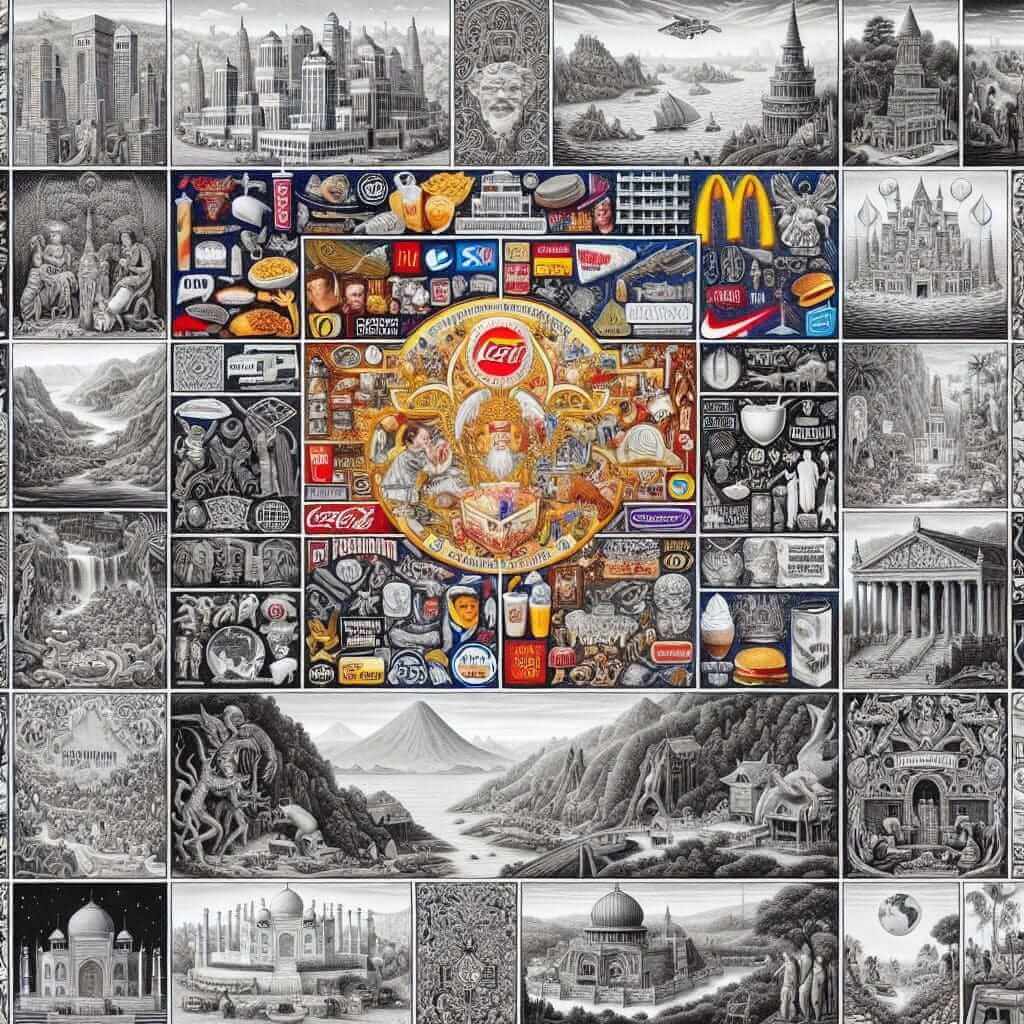Globalization has become a pervasive force in the modern world, influencing various aspects of life, including cultural identity. With the world becoming increasingly interconnected, the impact of globalization on cultural identity has been a recurring topic in IELTS Writing Task 2. In this article, we will explore the influence of globalization on cultural identity, providing a detailed sample essay, analysis, and essential vocabulary to help IELTS candidates prepare effectively.
Commonly Seen Topics:
- The impact of globalization on traditional cultures.
- Whether globalization leads to cultural homogenization.
- The role of globalization in cultural exchange and mutual understanding.
Selected Essay Topic
Topic: Some people believe that globalization is posing a threat to cultural identity, while others think that it enriches cultural diversity. Discuss both views and give your opinion.
Understanding the Essay Topic
Before delving into writing the essay, it is important to fully understand the topic:
- Discuss both views: You need to present a balanced discussion of both perspectives on how globalization affects cultural identity.
- Give your opinion: Conclude with your personal stance on the issue, supported by logical reasoning and evidence.
Sample Essay
In today’s globalized world, cultural identity is perceived as being under threat by some, while others see it as a means of enriching cultural diversity. This essay will discuss both viewpoints and present my opinion.
Viewpoint 1: Threat to Cultural Identity
One of the primary concerns is that globalization leads to cultural homogenization, where local traditions and customs are overshadowed by dominant global cultures. For instance, Western culture, with its pervasive media and consumer products, often overshadows indigenous cultures. This can result in younger generations losing touch with their cultural heritage, as they adopt more globally recognized practices and lifestyles. Additionally, the worldwide spread of a few languages, such as English, can lead to the decline of local languages, further diluting cultural uniqueness.

Viewpoint 2: Enrichment of Cultural Diversity
Conversely, globalization also promotes cultural exchange and mutual understanding. It allows for the dissemination of diverse traditions, arts, and philosophies across borders. For example, the popularity of yoga, which originated in India, has spread worldwide, offering insight into Indian philosophy and wellness practices. Furthermore, the cross-cultural interactions facilitated by globalization can foster greater tolerance and appreciation of different cultures, promoting a more inclusive and multicultural world.
My Opinion
In my opinion, while globalization does pose certain risks to cultural identity, it also offers significant opportunities for cultural enrichment. It is crucial for societies to find a balance by preserving their unique cultural practices while embracing the positive aspects of globalization. Governments and cultural organizations should work together to safeguard traditional customs through education and media, ensuring that globalization enhances rather than erodes cultural diversity.
Word count: 273
Key Points to Note
- Balanced Discussion: The essay presents both sides of the argument in a balanced manner.
- Clear Opinion: The opinion is stated clearly, providing logical reasoning and evidence.
- Use of Examples: Practical examples are included to support the points made.
- Coherent Structure: The essay is well-organized with a clear introduction, body paragraphs, and conclusion.
- Vocabulary and Grammar: The essay uses a range of vocabulary and grammatical structures appropriately.
Vocabulary & Grammar Tips
Vocabulary:
- Homogenization (n.) /həˌmɒdʒ.ɪn.aɪˈzeɪ.ʃən/: The process of making things uniform or similar.
- Indigenous (adj.) /ɪnˈdɪdʒ.ɪ.nəs/: Native to a particular region or environment.
- Dissemination (n.) /dɪˌsɛməˈneɪʃən/: The act of spreading something, especially information, widely.
- Cultural heritage (n.) /ˈkʌlʧərəl ˈhɛrɪtɪdʒ/: The legacy of physical artifacts and intangible attributes of a group or society inherited from past generations.
- Erode (v.) /ɪˈroʊd/: To gradually wear away.
Grammar Points:
- Complex Sentences: Use complex sentences to showcase your ability to manage various ideas and relationships.
- Subject-Verb Agreement: Ensure that your subjects and verbs agree in number (e.g., “Globalization affects” not “Globalization affect”).
- Transition Words: Use transition words (e.g., “for instance,” “conversely,” “furthermore”) to improve the flow of your essay.
Vocabulary to Remember
- Homogenization (noun)
- Indigenous (adjective)
- Dissemination (noun)
- Cultural heritage (noun)
- Erode (verb)
Conclusion
In conclusion, while globalization may pose challenges to cultural identity, it also holds potential for cultural enrichment. By striking a balance and actively preserving traditional practices, societies can ensure that their cultural identity thrives in a globalized world. Practice with a variety of topics and incorporate the vocabulary and grammar tips provided to excel in IELTS Writing Task 2.
Additional Practice Topics:
- The impact of mass media on cultural identity.
- The importance of maintaining cultural traditions in a globalized world.
For more related resources, you can explore articles such as The Influence of Cultural Heritage on National Identity and The Role of Cultural Heritage in National Identity.